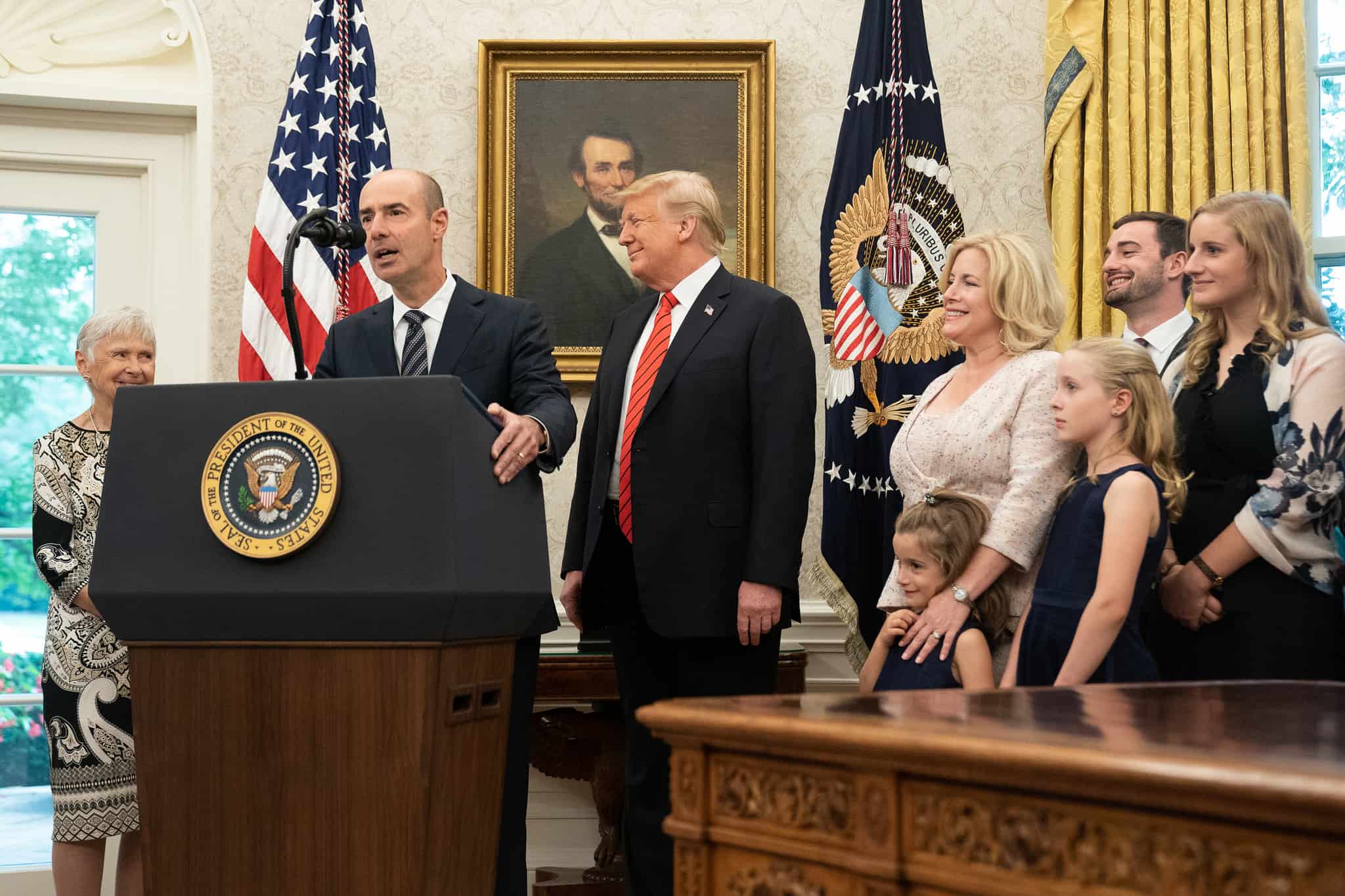
Jon Levitan is a student at Harvard Law School and a member of the Labor and Employment Lab.
Secretary of Labor Eugene Scalia is the subject of a scathing New Yorker profile written by Eyal Press. To readers of this blog, many of the subjects discussed will be familiar. But the full account of Scalia’s tenure is incredibly damning: from OSHA’s abdication of its duty to protect workers during the pandemic, to his rule making it easier for gig companies to misclassify workers as independent contractors, to his refusal to recuse himself from a rule requiring financial advisors to act in the best interests of their clients, even though he litigated against the rule as a lawyer. The piece highlights that Scalia’s reign has been particularly harmful to Black and brown workers. For example, Scalia ended a Labor department practice, created under the Obama administration, to collect not only back pay but damages from employers who committed wage theft. The bottom line, Press concludes, is that Scalia has predictably not the Secretary of Labor but “the Secretary of Employers.”
Amazon employees are pushing their employer to grant them paid time off to vote on November 3rd. Over 6,400 workers have signed a petition calling on the tech giant to make election day a paid holiday. The petition was organized by Amazon Employees for Climate Justice (AECJ), a group of activists within the company. Two members of AECJ were fired in April for protesting Amazon’s treatment of warehouse workers. The election day petition also highlights the lived conditions of warehouse workers: “We’re forced to choose between voting and making ends meet,” a warehouse worker said in AECJ’s press release.
Child care workers, always essential to a functioning society, have become even more critical amid the pandemic. Marcia Brown for The American Prospect profiles the industry as it undergoes a wave of union organizing. She highlights the massive win workers and organizers scored in California over the summer – when 97% percent of child care workers voted to join a union and bargain collectively with the state. Brown writes that in a moment when care work is as essential as electricity or the internet, “[w]orkers across the country are demanding that the next administration invest in the care economy, and by association, invest in the children and elderly individuals for whom they care.”






Daily News & Commentary
Start your day with our roundup of the latest labor developments. See all
February 3
In today’s news and commentary, Bloomberg reports on a drop in unionization, Starbucks challenges an NLRB ruling, and a federal judge blocks DHS termination of protections for Haitian migrants. Volatile economic conditions and a shifting political climate drove new union membership sharply lower in 2025, according to a Bloomberg Law report analyzing trends in labor […]
February 2
Amazon announces layoffs; Trump picks BLS commissioner; DOL authorizes supplemental H-2B visas.
February 1
The moratorium blocking the Trump Administration from implementing Reductions in Force (RIFs) against federal workers expires, and workers throughout the country protest to defund ICE.
January 30
Multiple unions endorse a national general strike, and tech companies spend millions on ad campaigns for data centers.
January 29
Texas pauses H-1B hiring; NLRB General Counsel announces new procedures and priorities; Fourth Circuit rejects a teacher's challenge to pronoun policies.
January 28
Over 15,000 New York City nurses continue to strike with support from Mayor Mamdani; a judge grants a preliminary injunction that prevents DHS from ending family reunification parole programs for thousands of family members of U.S. citizens and green-card holders; and decisions in SDNY address whether employees may receive accommodations for telework due to potential exposure to COVID-19 when essential functions cannot be completed at home.